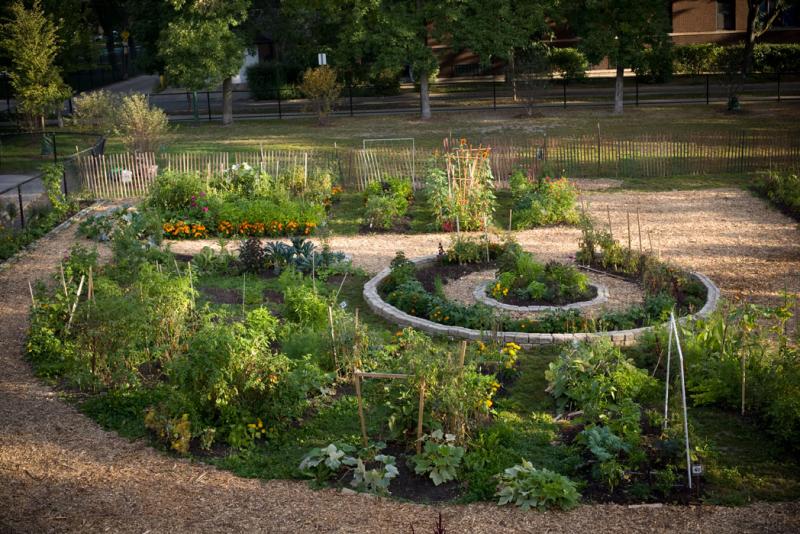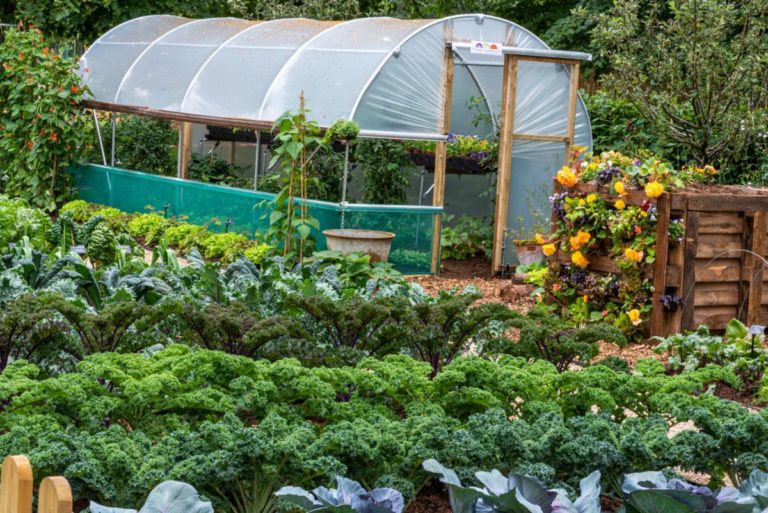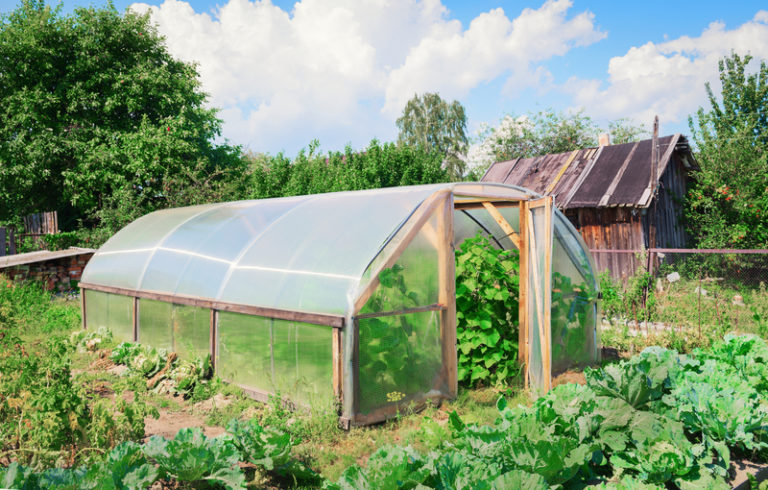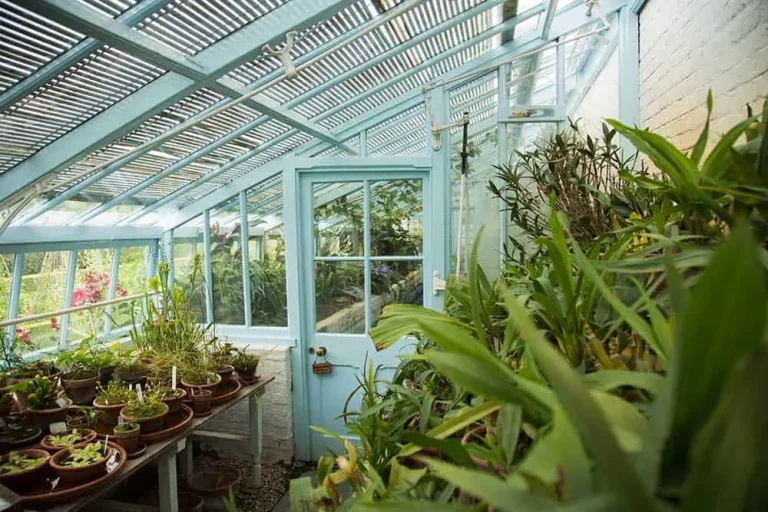Biodynamic gardening is a holistic approach to agriculture that not only enhances the health and productivity of crops but also improves the overall wellbeing of the farm ecosystem.
In off-grid desert farms, where water and resources are limited, biodynamic gardening offers a unique set of benefits that can help farmers thrive in these harsh environments.
By leveraging the power of nature and the interconnectedness of all living things, biodynamic gardening provides an effective solution for sustainable food production in desert regions.
We’ll explore the advantages of adopting a biodynamic approach to off-grid desert farming, from increased crop yields to improved soil health and beyond.
Improved soil health
Biodynamic gardening emphasizes the use of compost, mulch, and other natural amendments to improve soil health, which is essential for desert farming where soil can be poor and dry.
Biodynamic gardening recognizes the interconnectedness of all living systems and emphasizes the use of compost, mulch, and other natural amendments to improve soil health.
By incorporating these natural materials into the soil, the soil’s water-holding capacity and structure are improved, allowing for better root development and plant growth.
In addition, the use of cover crops and green manures helps to build soil organic matter and increase the soil’s biodiversity, further enhancing the soil’s fertility and resilience.
In the desert, where soil can be poor and dry, biodynamic gardening provides an effective solution for improving soil health and fostering a thriving ecosystem.
Offgrid desert farming can also incorporate other techniques such as rainwater harvesting, drip irrigation, and passive solar design to maximize water conservation and minimize the impact of extreme desert temperatures.
Increased crop yields
By using biodynamic techniques such as using lunar and astronomical influences to time planting and harvesting, and applying special plant and soil preparations, farmers can increase crop yields and reduce waste.
Offgrid desert farming offers a unique opportunity to explore innovative and sustainable agricultural practices.
One such approach is biodynamic farming, which leverages lunar and astronomical influences to optimize planting and harvesting schedules.
By aligning these activities with the cosmic rhythms, farmers can improve crop yields and reduce waste.
This technique considers the specific position of the moon, planets, and stars and their influence on the soil, plants, and animals.
For example, during certain lunar phases, the gravitational forces are believed to enhance root growth, while others may improve seed germination or flower formation.
To apply these techniques in desert farming, farmers must first assess the specific astronomical conditions for their location and crop selection.
This involves careful observation and record-keeping to understand the lunar and planetary cycles and their impact on the crops.
Based on this knowledge, farmers can adjust their planting and harvesting schedules to align with the most favorable cosmic influences.
Special plant and soil preparations can be applied to enhance the growth and health of the crops.
These preparations typically involve natural substances like compost, manure, and mineral-rich fertilizers, which promote the development of beneficial microorganisms in the soil.
By implementing these biodynamic techniques, offgrid desert farmers can not only increase their crop yields but also create a more resilient and sustainable agricultural system.
Enhanced biodiversity
Biodynamic gardening promotes biodiversity by using a variety of crops and encouraging the presence of beneficial insects and other animals, which can help to break disease and pest cycles.
Offgrid desert farming is an innovative approach to sustainable agriculture that not only enhances biodiversity but also promotes resilience and sustainability in harsh desert environments.
Biodynamic gardening, a key component of offgrid desert farming, is based on the principles of maintaining the balance of nature and promoting biodiversity.
This approach uses a variety of crops and encourages the presence of beneficial insects and other animals, which can help break disease and pest cycles.
By incorporating biodynamic gardening practices into offgrid desert farming, farmers can create a diverse and thriving ecosystem that is better equipped to handle the challenges of desert environments.
This includes promoting the presence of beneficial insects such as bees and butterflies, which can pollinate crops and help to control pests.
Other animals, such as ladybugs and lacewings, can also be encouraged to visit the garden, providing a natural means of pest control.
Furthermore, biodynamic gardening promotes the use of cover crops, which help to retain moisture, suppress weeds, and add organic matter to the soil.
This can help to improve soil health, increase crop yields, and promote long-term sustainability.
By incorporating cover crops into their farming practices, offgrid desert farmers can create a more resilient and productive ecosystem.
In addition to these benefits, offgrid desert farming also promotes the use of raised beds, which can help to improve soil health and increase crop yields.
Raised beds allow for better drainage and aeration of the soil, while also providing a more controlled environment for crops to grow.
This can be particularly beneficial in desert environments, where soil can be poor quality and water can be scarce.
By using raised beds, offgrid desert farmers can improve the fertility of their soil and create a more sustainable farming system.
Overall, the integration of biodynamic gardening and raised bed farming can provide a wide range of benefits for offgrid desert farmers.
These practices can help to improve soil health, increase crop yields, and promote long-term sustainability, all while reducing the need for external inputs and promoting biodiversity.
By incorporating these practices into their farming systems, offgrid desert farmers can create a more resilient and productive ecosystem, while also reducing their environmental impact.
Resilience to climate change
Desert farming can be particularly challenging due to extreme temperatures and drought, but biodynamic gardening can help farmers build resilience to these challenges by using techniques such as mulching and cover cropping to retain moisture and reduce soil temperature fluctuations.
Offgrid desert farming presents a unique set of challenges, particularly in light of the increasing frequency and severity of extreme weather events linked to climate change.
In this arid and inhospitable environment, biodynamic gardening techniques can be particularly effective in building resilience to climate-related challenges.
One key approach is to use mulching and cover cropping to retain moisture and reduce soil temperature fluctuations.
By incorporating these techniques into their farming practices, desert farmers can create a more stable and productive growing environment, even in the face of extreme heat and drought.
To begin with, mulching involves adding organic materials like compost or straw to the soil surface.
This helps to retain moisture, suppress weeds, and regulate soil temperature.
In the desert, where temperatures can soar and rain is scarce, mulching can help to maintain a more stable soil environment that is better able to support plant growth.
By using locally-sourced materials like cactus wood or rock, farmers can create a long-lasting mulch that enriches the soil over time.
Cover cropping is another biodynamic technique that can help desert farmers to build resilience to climate change.
By planting cover crops like clover or alfalfa in between crop cycles, farmers can improve soil health and fertility, as well as prevent erosion and runoff.
These cover crops can also help to absorb excess moisture and prevent soil compaction, which are particular challenges in arid environments.
In addition to these techniques, desert farmers can also leverage other biodynamic practices like crop rotation, composting, and incorporating livestock into their operations to build resilience to climate change.
Desert farming presents unique challenges due to extreme temperatures and drought, but biodynamic gardening can help farmers overcome these obstacles.
Mulching with locally-sourced materials like cactus wood or rock can create a long-lasting, nutrient-rich soil environment that supports plant growth even in arid conditions.
Cover cropping with crops like clover or alfalfa can improve soil health and fertility, prevent erosion, and absorb excess moisture, all of which are essential for desert farming resilience.
Other biodynamic practices like crop rotation, composting, and incorporating livestock can further enhance system sustainability and increase crop yields and quality.
These strategies can help desert farmers adapt to climate change by building resilience against extreme weather events and changing temperature and moisture patterns.
Cost-effective
Biodynamic gardening does not rely on expensive chemical inputs, but instead uses natural and organic methods to promote soil health and crop growth, making it a cost-effective option for desert farmers.
Offgrid desert farming using biodynamic gardening methods can be a highly cost-effective and sustainable approach to food production.
By avoiding the use of expensive chemical inputs and relying on natural and organic methods, desert farmers can promote soil health and crop growth without breaking the bank.
This approach focuses on the interconnectedness of all elements in the garden, including the soil, plants, animals, and cosmos, to create a thriving ecosystem that is self-sustaining and productive.
One of the key practices in biodynamic gardening is the use of compost and manure teas to enhance soil fertility and promote the growth of beneficial microorganisms.
These methods are not only cost-effective but also help to build soil health and structure, improving the overall productivity of the garden.
Biodynamic gardening uses natural pest control methods such as introducing beneficial insects, birds, and other wildlife to the garden, which eliminates the need for expensive chemical pesticides.
Moreover, biodynamic gardening can also help desert farmers to conserve water and adapt to the challenging desert climate.
By using mulch and cover crops to retain moisture, and by planting crops that are well-suited to the local climate, desert farmers can reduce their water usage and improve the resilience of their crops.
Offgrid desert farming using biodynamic gardening methods can be a highly productive and sustainable approach to food production, providing a cost-effective and eco-friendly solution for desert farmers.
Improved water retention
Biodynamic gardening techniques such as mulching and cover cropping can help to retain moisture in the soil, which is especially important in arid desert environments.
In arid desert environments, retaining moisture in the soil is important for healthy plant growth and survival.
Biodynamic gardening techniques such as mulching and cover cropping can help to achieve this goal by creating a more favorable soil environment for plants to thrive.
Mulching involves layering organic materials such as compost, straw, or wood chips on the soil surface to retain moisture, suppress weeds, and regulate soil temperature.
Cover cropping involves planting crops in between cash crops to improve soil health and fertility, which can also help to retain moisture in the soil.
These techniques work together to create a more resilient and sustainable offgrid desert farming system, allowing farmers to grow a variety of crops even in the harshest of desert environments.
By using these biodynamic methods, farmers can optimize their water usage and minimize their reliance on external resources, leading to more self-sufficient and environmentally-friendly agricultural practices.
Holistic approach
Biodynamic gardening takes a holistic approach to farming, considering the interconnectedness of all aspects of the farm, including soil, plants, animals, and cosmic influences. This approach can help farmers to better understand the complex interactions within their ecosystem and make more informed decisions about their farming practices.
Here’s a detailed elaboration of the text you provided, with a focus on offgrid desert farming
Biodynamic gardening is a holistic approach to farming that recognizes the interconnectedness of all aspects of the farm, including the soil, plants, animals, and even cosmic influences.
This approach is particularly relevant for offgrid desert farming, where the challenges of extreme heat, limited water availability, and nutrient-depleted soils require a thoughtful and integrated approach to farming.
By taking a holistic approach, offgrid desert farmers can better understand the complex interactions within their ecosystem and make more informed decisions about their farming practices.
For example, they can use compost and manure to improve soil health and fertility, which in turn can enhance the growth and yield of their crops.
They can also incorporate beneficial insects and microorganisms into their farming practices, such as bees for pollination and nematodes for pest control.
Furthermore, biodynamic gardening acknowledges the importance of cosmic influences on the farm, such as the movements of the planets and the cycles of the seasons.
By paying attention to these influences, offgrid desert farmers can tailor their farming practices to the specific needs of their ecosystem and optimize their crop yields and soil health.
In addition, biodynamic gardening emphasizes the use of local and organic materials, which can help to reduce the carbon footprint of the farm and promote sustainability.
By using locally-sourced materials and minimizing the use of synthetic fertilizers and pesticides, offgrid desert farmers can create a more resilient and self-sufficient farming system that is better able to adapt to the challenges of a desert environment.
Biodynamic gardening offers a holistic approach to farm management that can help offgrid desert farmers to achieve greater balance and harmony in their farming practices.
By incorporating the principles of biodynamics into their work, these farmers can create a more sustainable and productive farming system that is better equipped to thrive in the challenging conditions of the desert.]
One of the most effective methods for offgrid desert farming is biodynamic gardening, a holistic approach to farming that considers the interconnectedness of all aspects of the farm, including soil, plants, and cosmic influences.
By incorporating beneficial insects and microorganisms into their farming practices, such as bees for pollination and nematodes for pest control, offgrid desert farmers can enhance the growth and health of their crops.
By employing techniques such as mulching and cover cropping to preserve moisture and prevent erosion, these farmers can increase the resilience of their farming system.
Furthermore, biodynamic gardening offers a self-sufficient farming system that is better able to adapt to the challenges of a desert environment, allowing farmers to create a more sustainable and productive farming system that thrives even in the harsh conditions of the desert.
By embracing these principles of biodynamics, offgrid desert farmers can achieve greater balance and harmony in their farming practices, resulting in healthier crops and a more productive and sustainable farming system.
Want More? Dive Deeper Here!
Hey there! If you’re the type who loves going down the rabbit hole of information (like we do), you’re in the right spot. We’ve pulled together some cool reads and resources that dive a bit deeper into the stuff we chat about on our site. Whether you’re just killing time or super into the topic, these picks might just be what you’re looking for. Happy reading!






